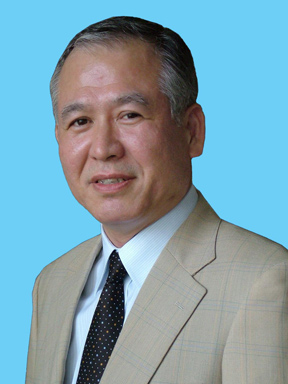Hirofumi Akagi: Difference between revisions
m (Text replace - "[[Category:Power, energy & industry application|" to "[[Category:Power, energy & industry applications|") |
No edit summary |
||
| (4 intermediate revisions by 2 users not shown) | |||
| Line 1: | Line 1: | ||
== | {{Biography | ||
|Image=Akagi.jpg | |||
|Associated organizations=Tokyo Institute of Technology | |||
|Fields of study=Power | |||
|Awards=[[IEEE William E. Newell Power Electronics Award]]; [[IEEE Medal in Power Engineering]] | |||
}} | |||
Hirofumi Akagi, professor and vice dean of the school of engineering at the Tokyo Institute of Technology, is a leading researcher in power conversion systems and their application to industry, utility and transportation. He has pioneered the theory of instantaneous reactive power in three-phase circuits, referred to as the “p-q theory,” which has been applied to power conversion systems and active filters for power conditioning. In addition, Dr. Akagi invented hybrid active-passive filters, the system concept and operating principle of which have been applied to the hybrid active-passive filter used in the Yamanashi test line for Japan’s super high-speed, magnetically levitated train system. An [[IEEE Fellow Grade History|IEEE Fellow]], Dr. Akagi holds nine patents – with five more pending, and has authored or co-authored more than 70 IEEE Transactions/Journals. Dr. Akagi has received four IEEE Transactions Prize Paper Awards, the [[IEEE William E. Newell Power Electronics Award|IEEE William E. Newell Power Electronics Award]], the 2018 [[IEEE Medal in Power Engineering]], and the IEEE Industry Applications Society Outstanding Achievement Award. | |||
[[ | [[Category:Energy]] | ||
{{DEFAULTSORT:Akagi}} | |||
Latest revision as of 14:51, 23 April 2018
- Associated organizations
- Tokyo Institute of Technology
- Fields of study
- Power
- Awards
- IEEE William E. Newell Power Electronics Award, IEEE Medal in Power Engineering
Biography
Hirofumi Akagi, professor and vice dean of the school of engineering at the Tokyo Institute of Technology, is a leading researcher in power conversion systems and their application to industry, utility and transportation. He has pioneered the theory of instantaneous reactive power in three-phase circuits, referred to as the “p-q theory,” which has been applied to power conversion systems and active filters for power conditioning. In addition, Dr. Akagi invented hybrid active-passive filters, the system concept and operating principle of which have been applied to the hybrid active-passive filter used in the Yamanashi test line for Japan’s super high-speed, magnetically levitated train system. An IEEE Fellow, Dr. Akagi holds nine patents – with five more pending, and has authored or co-authored more than 70 IEEE Transactions/Journals. Dr. Akagi has received four IEEE Transactions Prize Paper Awards, the IEEE William E. Newell Power Electronics Award, the 2018 IEEE Medal in Power Engineering, and the IEEE Industry Applications Society Outstanding Achievement Award.
